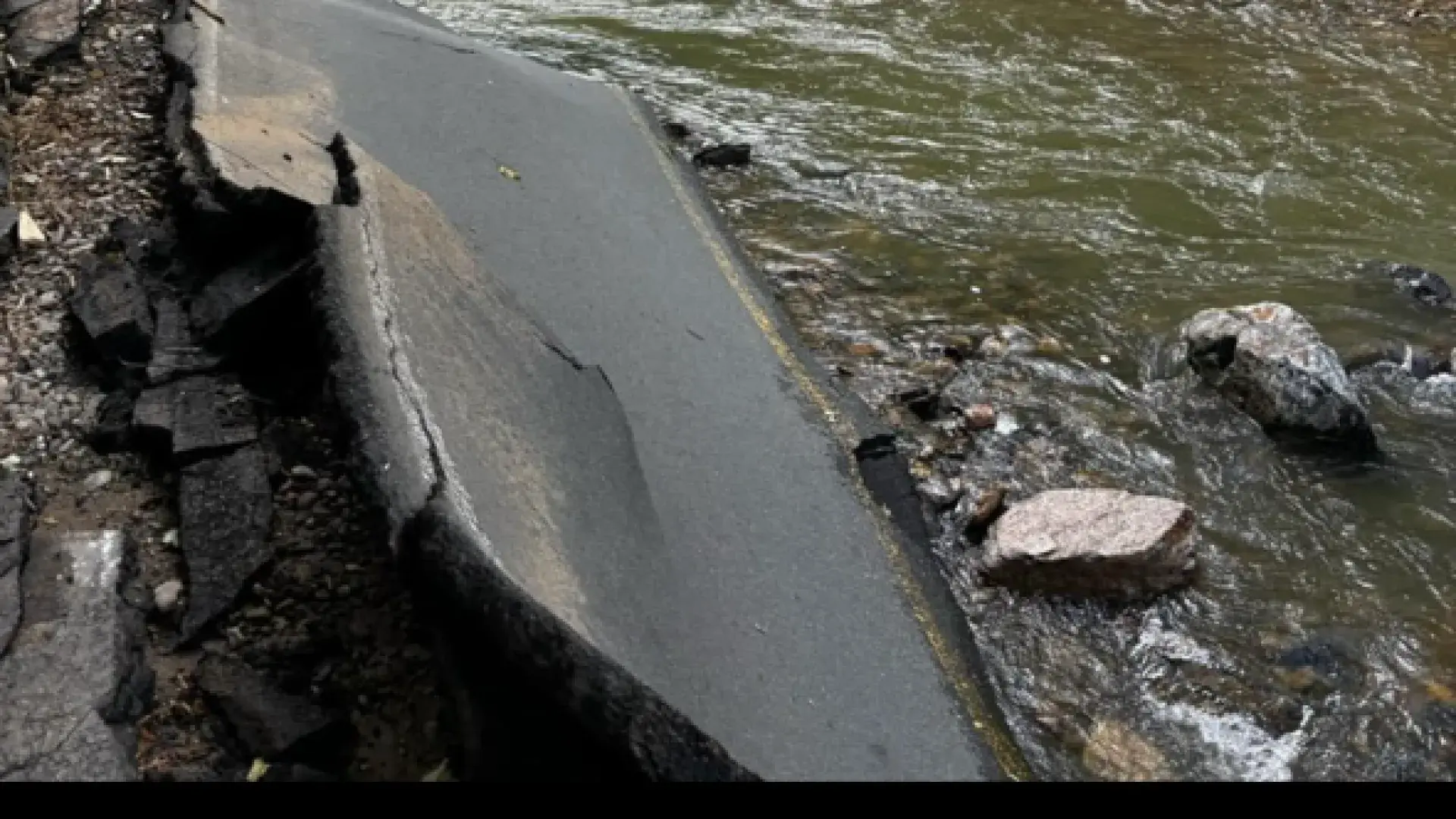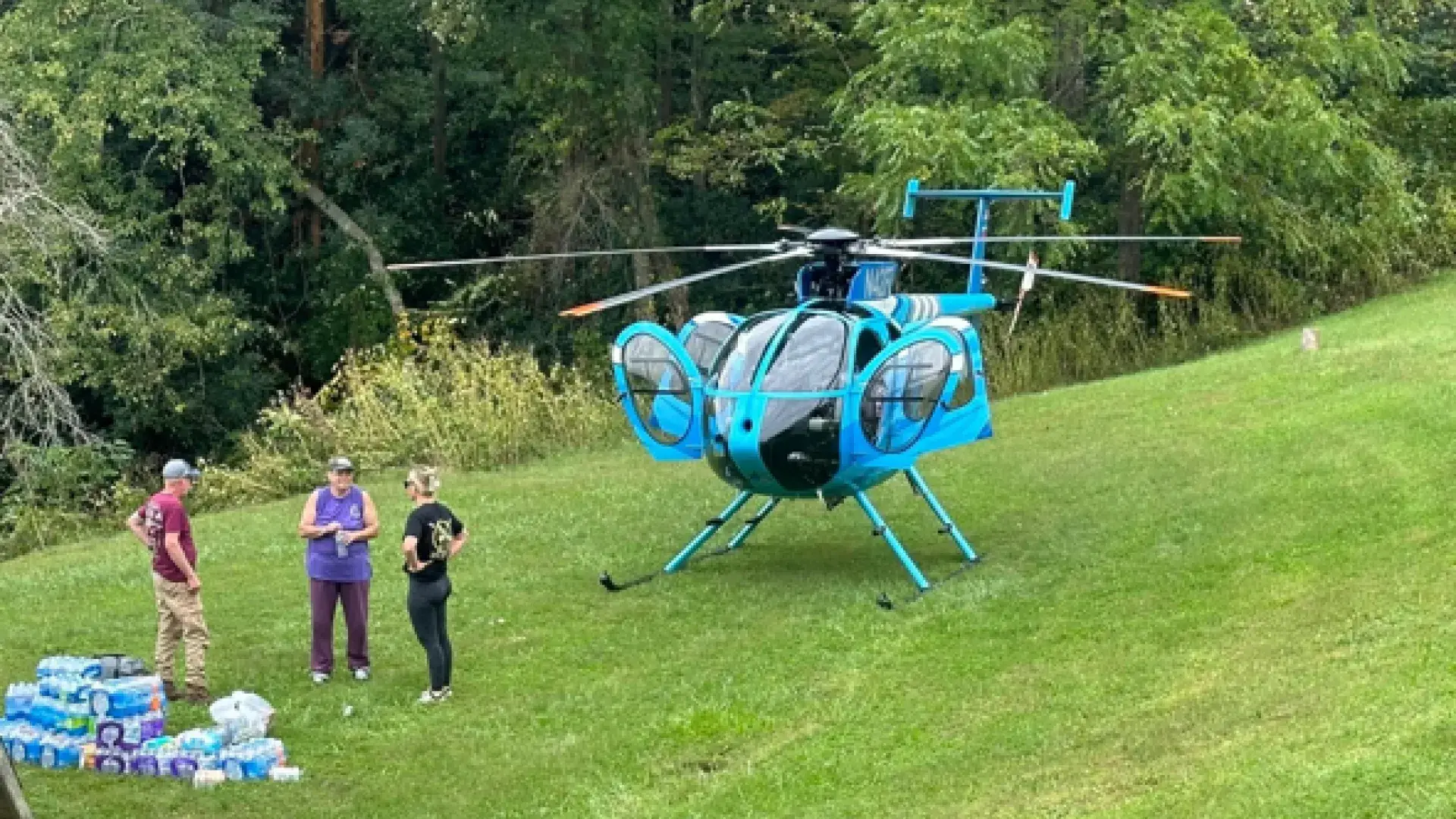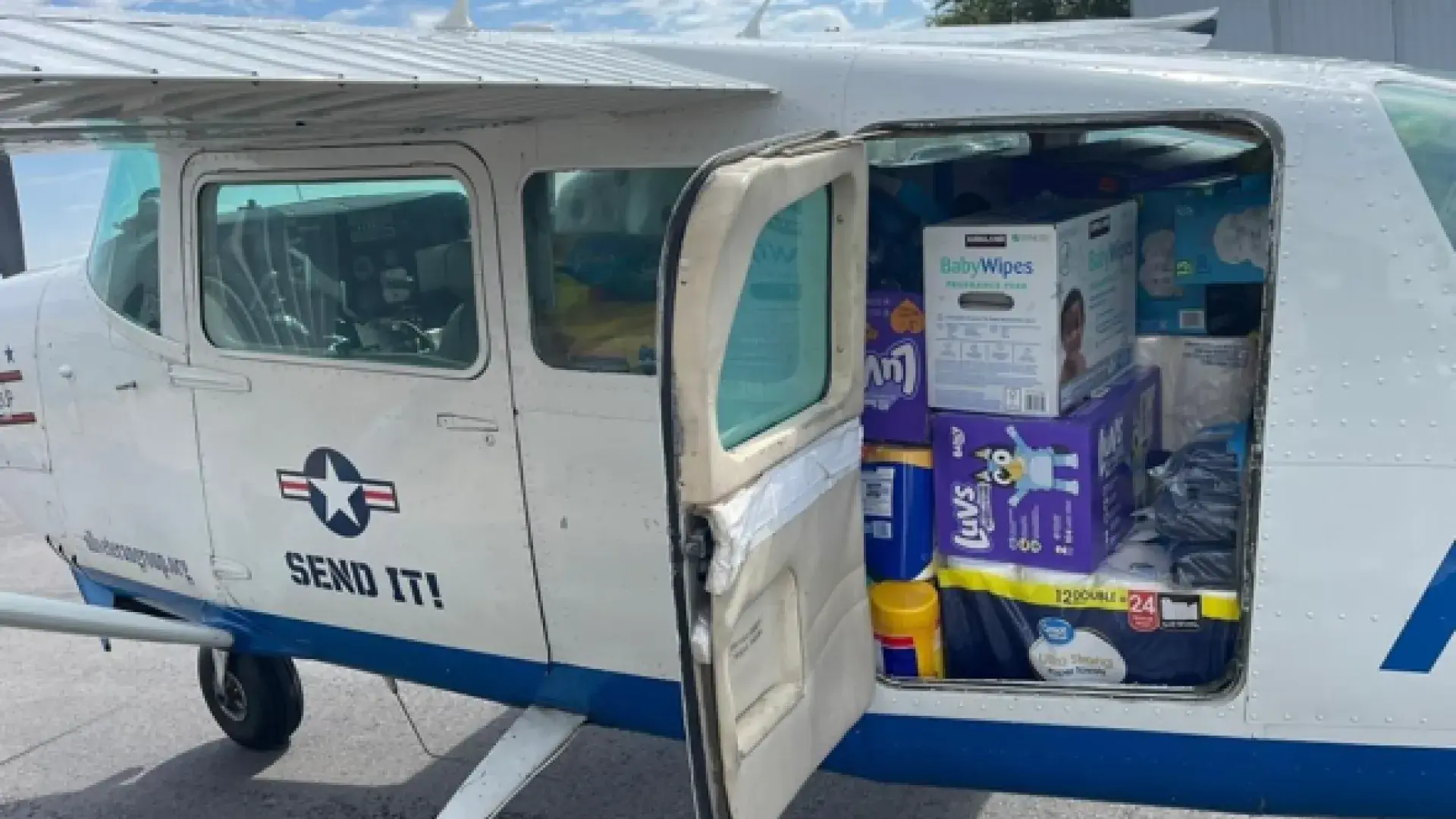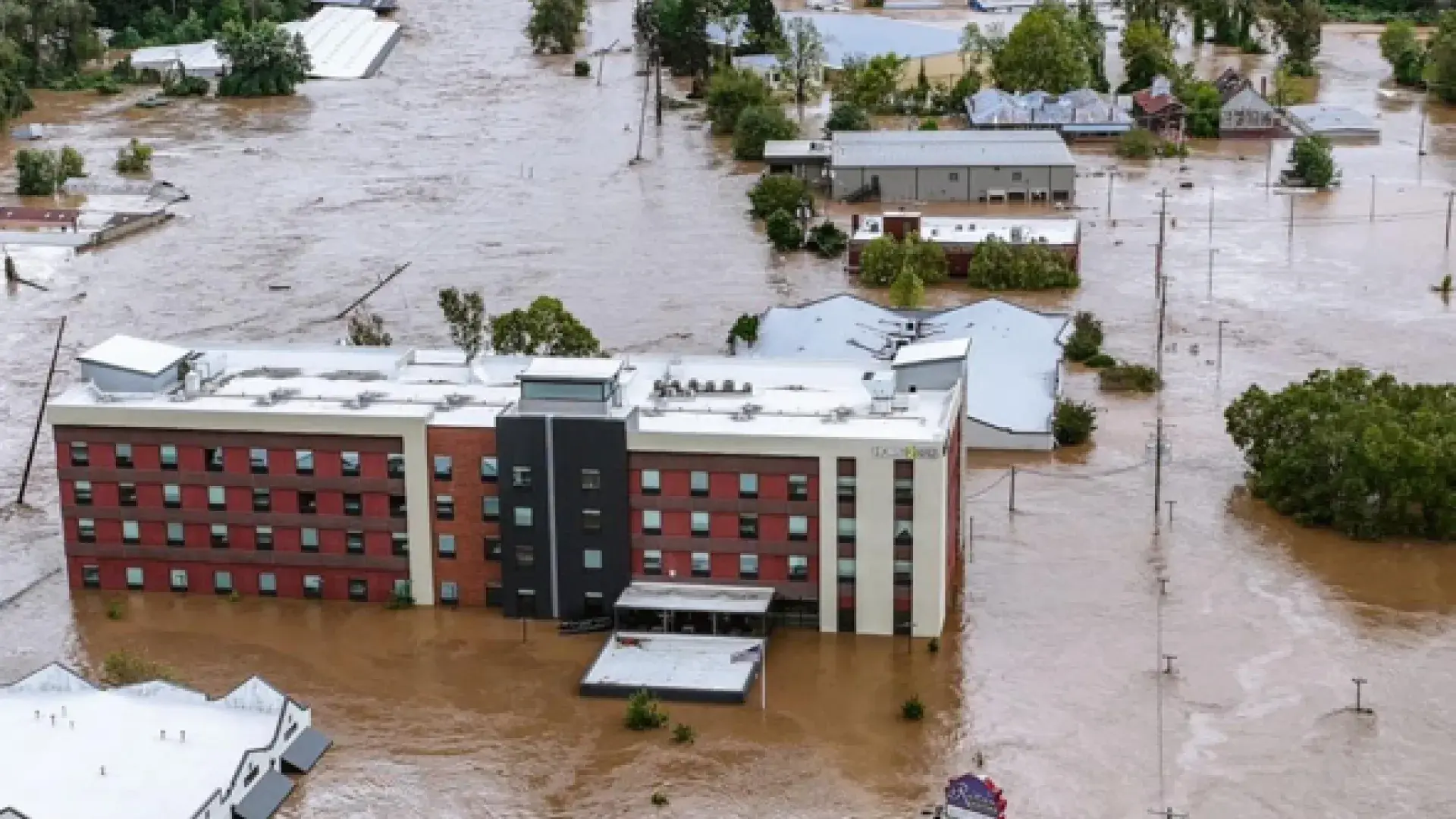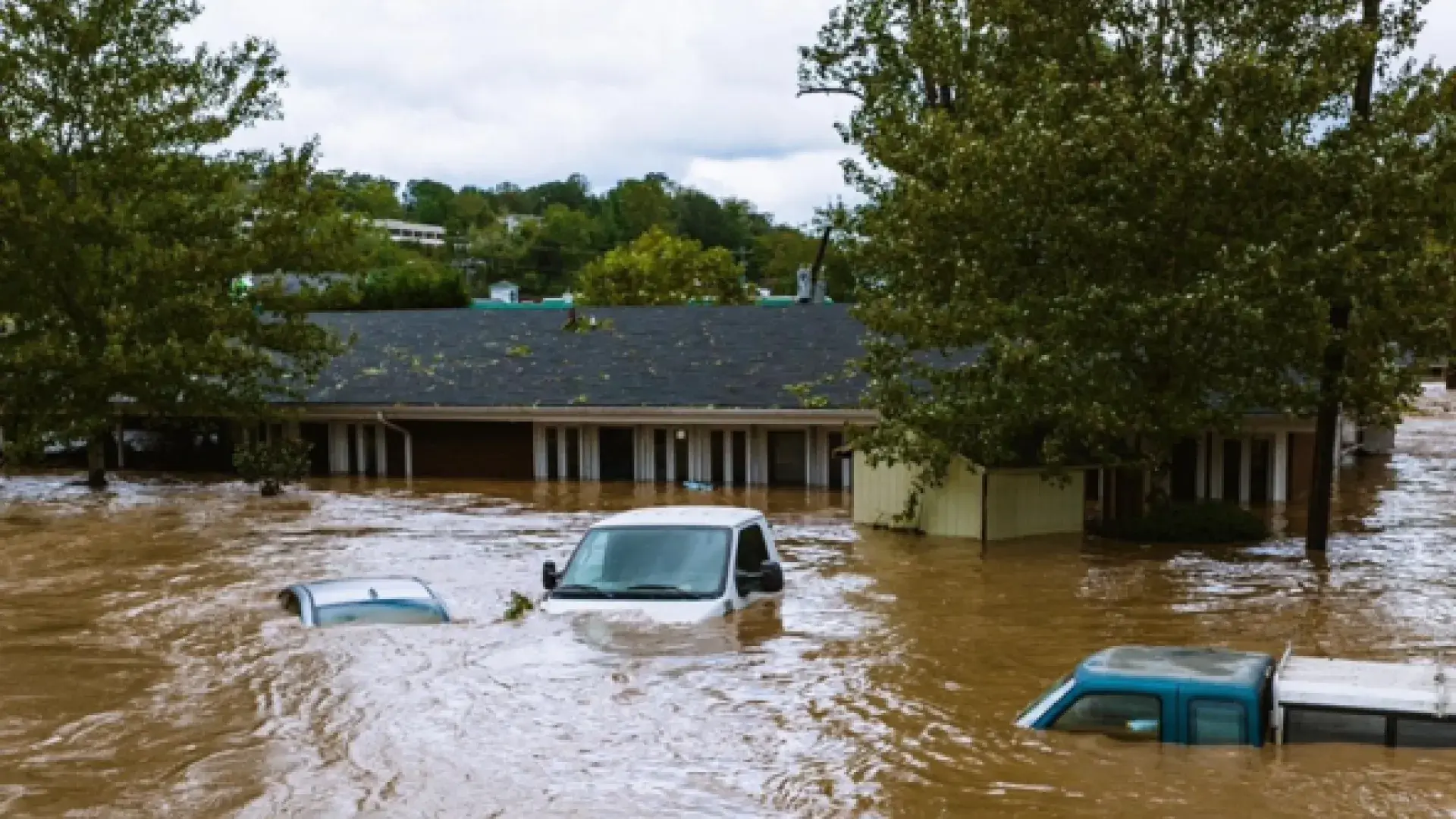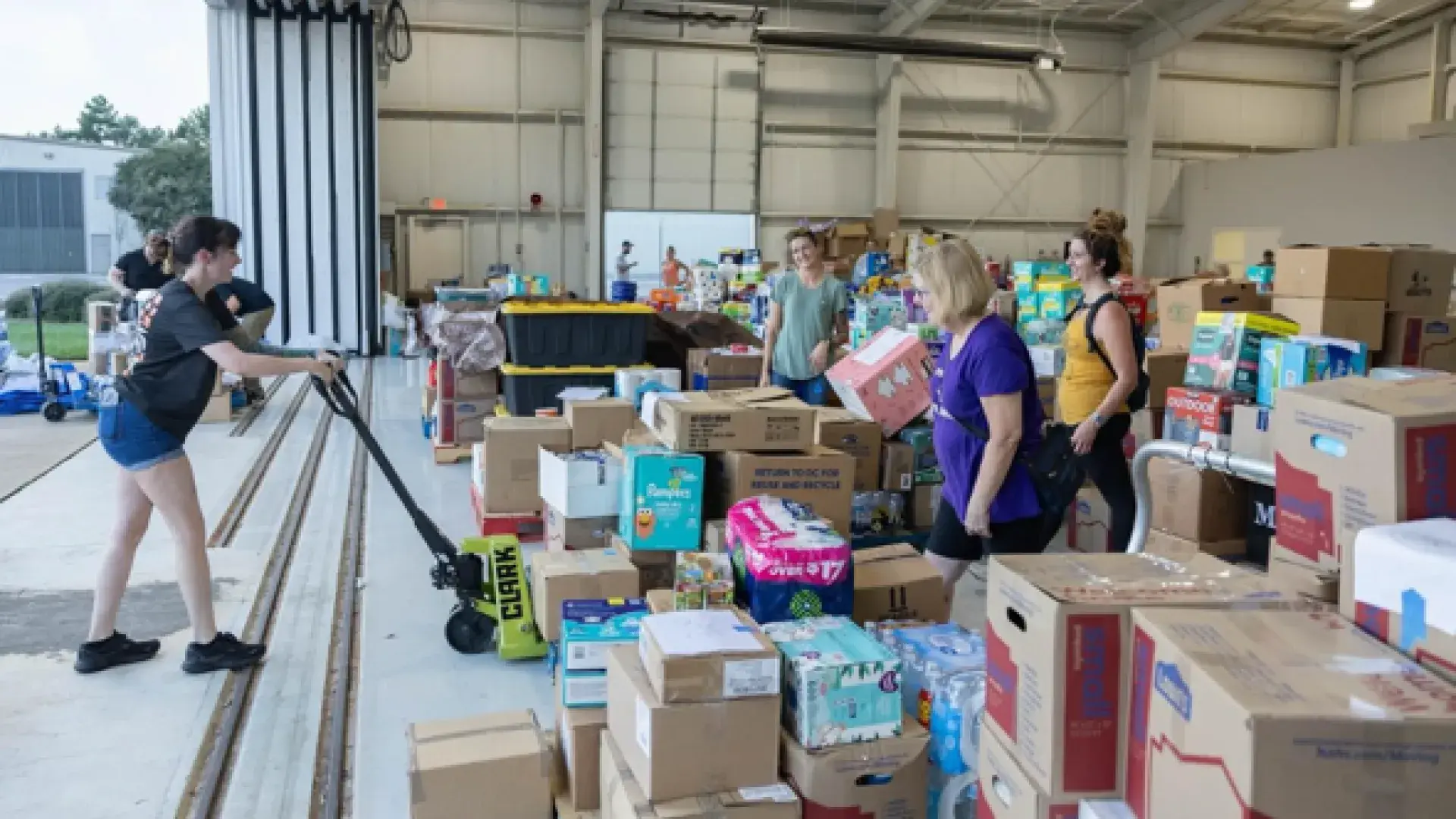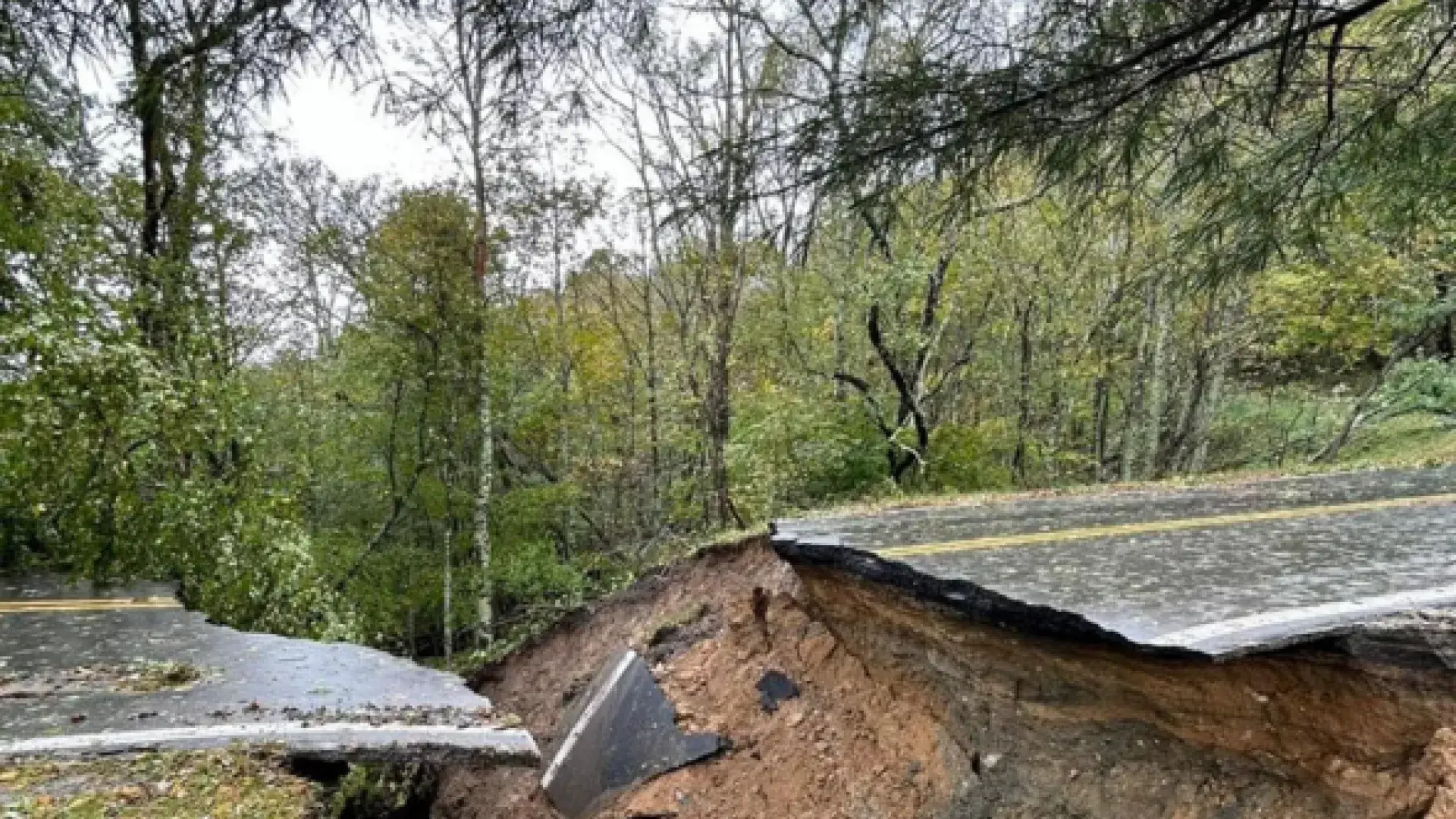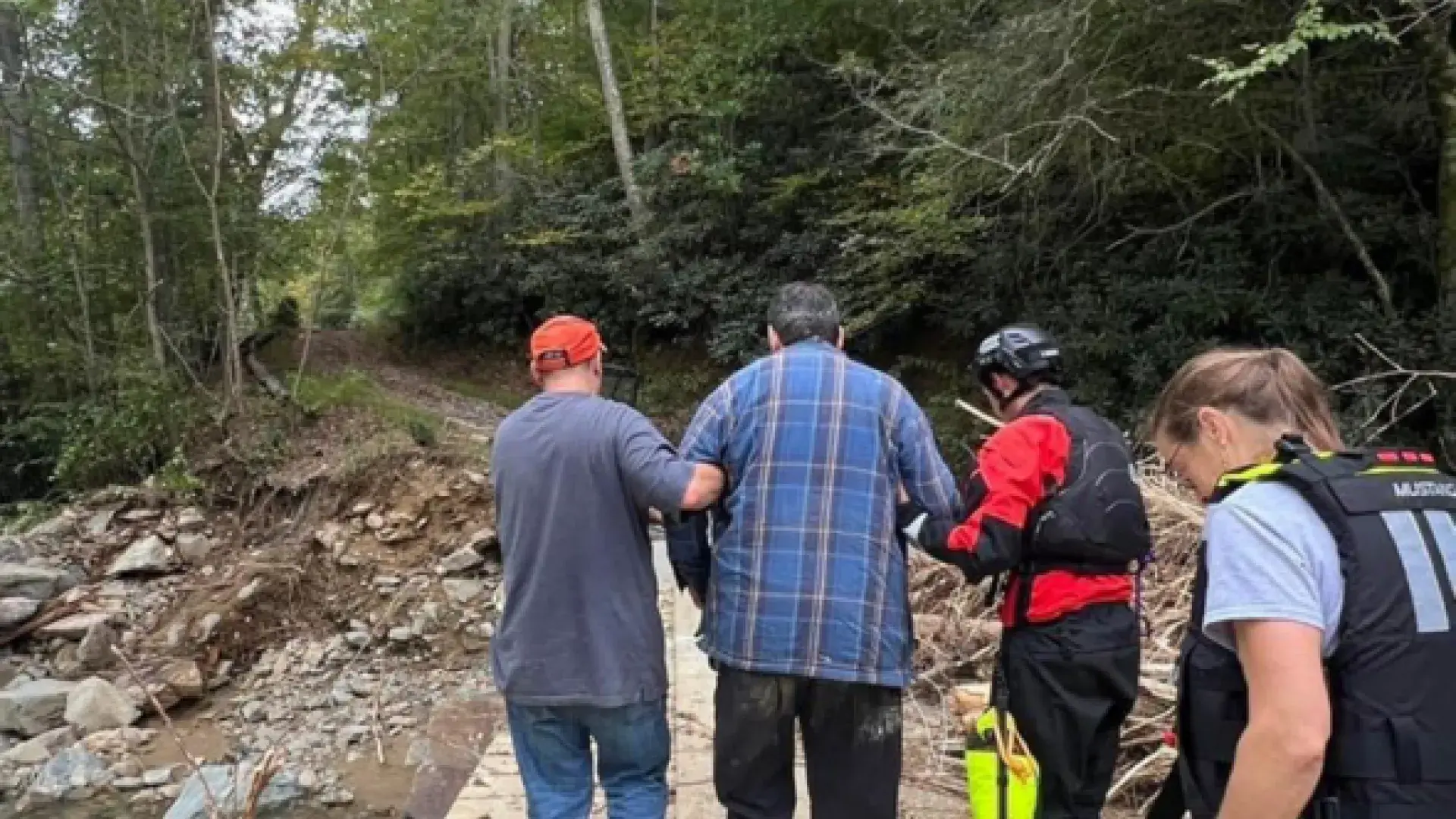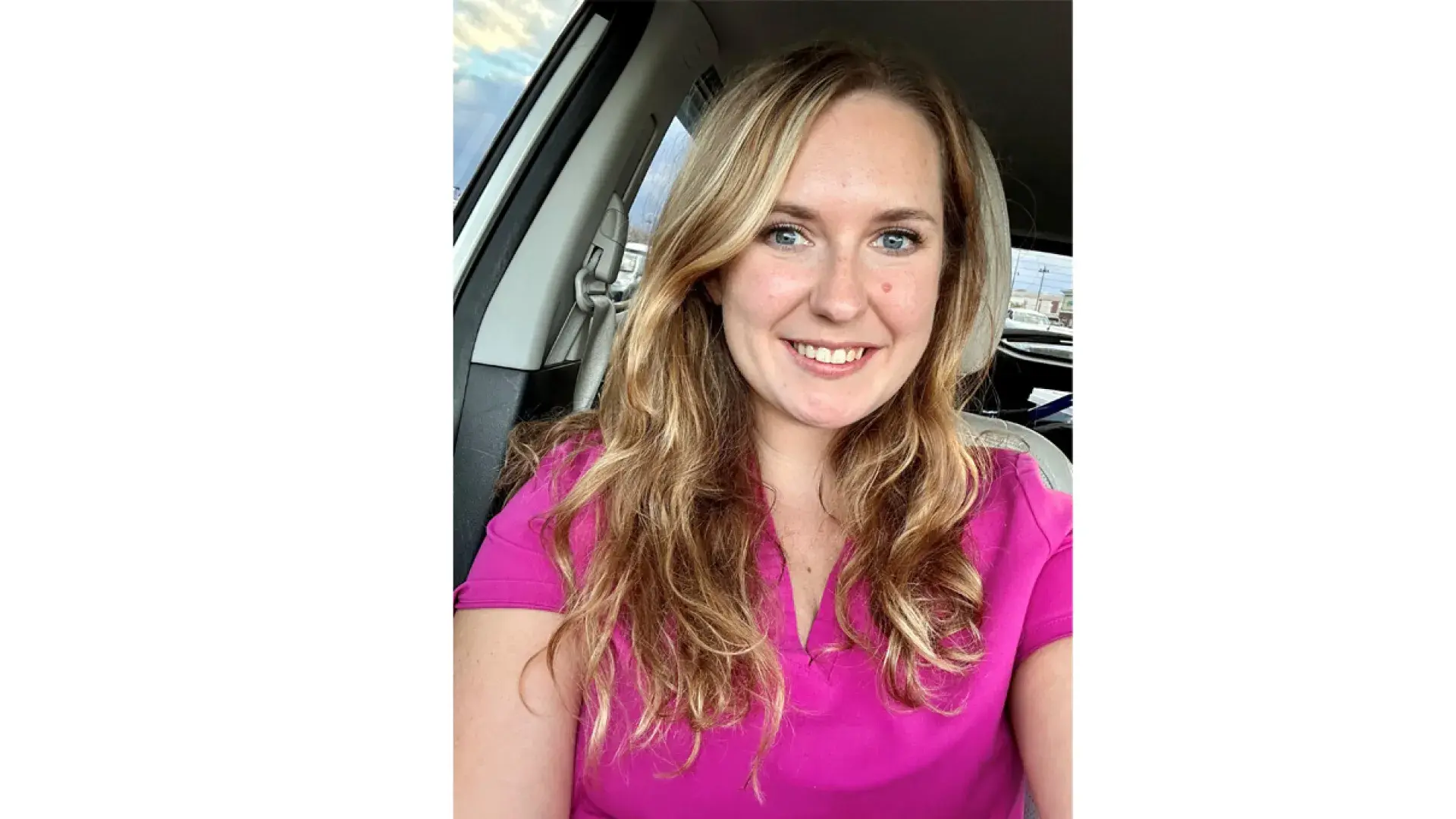
Jessica Broughton, OTD ’20, working with Operation Airdrop to get much needed supplies to survivors
As the death toll from Hurricane Helene eclipses 200 in the Southeast, MGH Institute alum Jessica Broughton is doing all she can to help.
Now living in Sherrills Ford, N.C. — the foothills of the state — where high winds and rain led to power outages, Broughton is lucky, and she knows it. Hurricane Helene brushed her area but pummeled western North Carolina with historic rain that has caused unprecedented damage to roadways, homes, bridges, and infrastructure.
“It's just absolutely heartbreaking and devastating to see the level of devastation that we have,” said Boughton, who moved to North Carolina a month ago. “The historic amounts of rain all at once caused flooding to river ways and lakes and the dam burst, which caused catastrophic, rapid flash flooding as well as mudslides.”
The massive flow of water has washed out most of the major interstates, making highways and roadways so impassable that horses and mules are being used to transport supplies. The downed trees took powerlines with them, so power is out as is cell service in most of the area. The water isn’t safe to drink, so residents have to boil what they can before consuming it.
“People are essentially trapped in these areas without any way to evacuate or tell anyone that they do need help,” said Broughton. “One of my friends, who's in the Asheville area, said she's not sure if she's still able to evacuate because she only has a limited amount of gas in her car, and she doesn't want to waste the gas in her car and not be able to get out and have to turn around and come back. So, she's just trying to wait it out.
“It is almost impossible to access a lot of these communities, except for by air. It’s not safe for volunteers to use the roadways, and they're actually heavily discouraging people to drive, just because they don't want them to put their own lives in danger. So that's why they're relying on organizations to be able to deliver supplies by air.”
That’s where Operation Airdrop comes in. It’s a nonprofit organization that’s using volunteer airplane and helicopter pilots to deliver donations and supplies to remote communities where roadways can’t be accessed. And when they see someone who needs to be evacuated, they alert the National Guard.
“They find places where they can land and then they distribute supplies on foot to people they find,” said Broughton, who is organizing donations and getting them ready to be sent out.
Among the items most in need: clean water, non-perishable foods, medical and hygiene supplies, diapers, baby wipes, and toothbrushes.
“Basically, anything that people can use to take care of themselves, just to get them through until they're rebuild or evacuate,” noted Broughton.
Broughton graduated from the MGH Institute with a Doctor of Occupational Therapy degree then spent four years with the Cambridge Health Alliance, working in the PACE Program with older adults before moving to North Carolina last month. When the hurricane hit, Broughton was looking for work, and just yesterday, accept a job at a local hospital. Until she begins, helping others will be her fulltime job.
“The people living in western North Carolina are some of the toughest people in our state,” said Broughton. “They're really hard-working and they really rely on the tourism industry, which is going to be very heavily impacted by this.
“Just continue keeping these people in your thoughts as they navigate this unprecedented disaster. If you're able to contribute anything, it would be extremely helpful. This is going to be a month to yearlong process for them to be able to get back to anything resembling a normal way of life.”
If you would like to contribute to the Hurricane Relief Efforts in North Carolina, please visit Operation Airdrop.
